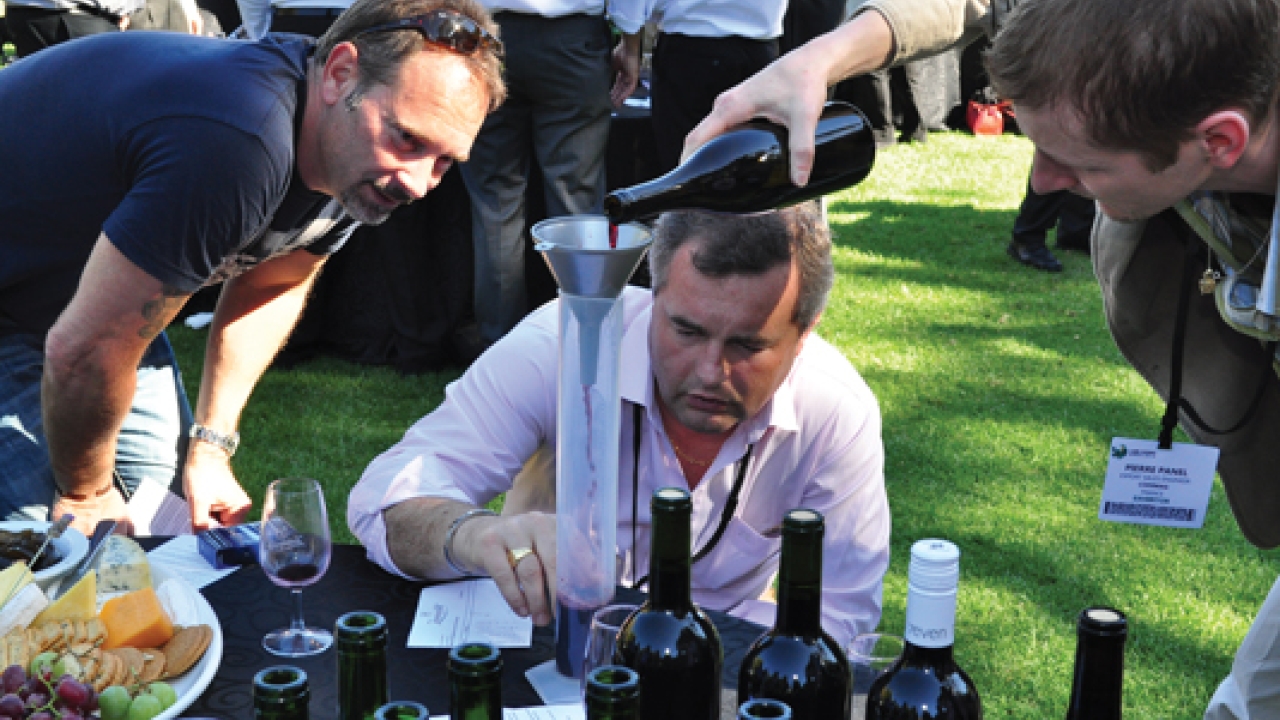Putting Africa on the labels map

The Tarsus Group has run a Label Summit in Africa for the first time. Danielle Jerschefske and Andy Thomas report on a highly successful event
The inaugural Label Summit Africa last March attracted over 300 delegates, including converters, brand owners and label designers, to the Cape Town International Convention Centre (CTICC).
The African market for PS labels is still relatively small, given the current size of the consumer market. South Africa, the continent’s powerhouse, has a population of only 50 million.
According to the AWA Labeling Report for the Africa and Middle East markets, presented at the conference, PS labels have a 38 percent share of the overall African labels market, while wet glue accounts for 40 percent. Of the PS labels used in Africa, around 86 percent are prime labels, with VIP labels only eight percent. This can be accounted for by the low stage of development of the continent’s logistics networks. AWA sees this as key future growth areas for PS. In comparable developing markets like India, VIP for logistics accounts for half of PS usage.
Shrink sleeves currently hold a respectable eight percent market share and growing, while AWA’s Cory Reardon told delegates that in-mold labels have a good growth potential from a low base of around one percent.
Xeikon’s Filip Weymans identified a big opportunity for digitally printed PS labels in combating counterfeiting. To illustrate the scale of the problem, Weymans said that over one quarter of all medicines sold in Africa contain no active ingredients.
Retail driven
Trends in the retail sector largely drive label industry developments, and an extremely interesting panel discussion brought together representatives from leading retail chains Shoprite, Clicks and Woolworths with input from branding specialist Calibre Brand Solutions.
Shoprite is one of the biggest grocery retailers on the continent of Africa with a presence in over 16 countries. It makes about 25 percent of its profit on sales of private label goods.
Mark Anley, the company’s packaging technology manager, called on label converters to partner with Shoprite to develop new, more sustainable packaging options. ‘Innovation is imperative. There can be no contamination issues when it comes to developing more sustainable packaging, and sustainable packaging must maintain its functionality. Our primary goal, for now, is to simply reduce packaging at the beginning of the design process.’
Building on the sustainability theme, Jean DuToit, managing director of Boland Cellar in Paarl, South Africa, explained how the company had adopted the sustainability framework outlined by the Business Social Compliance Initiative (BSCI).
Boland Cellar is one of South Africa’s top 20 exporters, and sells the majority of its product into Europe where many retailers use the BSCI framework. DuToit told delegates how the company had reduced the carbon footprint of its ‘Flutterby’ merlot and sauvignon blanc wines, sold in Europe in 750mL PET bottles, by bulk shipping then bottling and labeling closer to local retail outlets. This also saved money, as PET is more costly in South Africa, and meant the PET was more likely to be recycled.
Delegates later heard that over two thirds of the wine exported from South Africa is now bulk shipped.
Another interesting take on the sustainability question came from the event’s keynote speaker, Jay Gouliard of Avery Dennison label and packaging materials, who looked at the benefits of eco-friendly label systems and why increasing sustainability maximizes profitability.
Grant Watson, from Rotolabel, outlined the benefits of digital printing with his HP Indigo equipment. Watson said around 70 percent of the company’s work is below 1,500m run length, and as well as labels, he has printed 10 micron film sachets in short runs which are then transferred to conventional when the job size increases.
Continuing the digital theme, Dr Adrian Steele of the UK’s Mercian Labels Group gave a case study on how online marketing transformed a short run label printing business model.
Other highlights saw a panel of leading converters address challenges and opportunities facing the industry in South Africa and beyond, including Callie de Wet, managing director of Paarl Labels; Jeremy Ferrow, managing director, Ferroprint; Leal Wright, general manager, Labels and Packaging Division, Uniprint; and Sachen Gudka, CEO Interlabels Africa.
A wine producers’ panel showcasing Boer & Brit and Haskell Vineyards looked at engaging consumers through clever product promotions, and led to the plea for label paper suppliers to make the same materials available in South Africa as in Europe. A move away from manually applying wet glue labels and towards applying PS labels automatically was a key trend identified. Roger Pellow, MD of the Tarsus label and packaging group, said the Summit will return to South Africa on 10-11 March 2014.
Pictured: Delegates network at a wine mixing event at the Zevenwacht estate
This article was published in L&L issue 3, 2012
Stay up to date
Subscribe to the free Label News newsletter and receive the latest content every week. We'll never share your email address.


